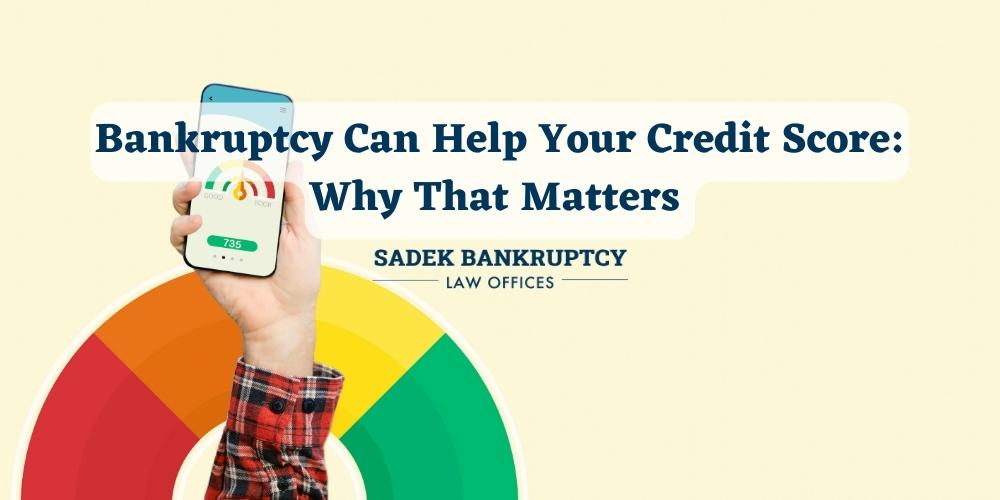Bankruptcy Can Help Your Credit Score: Why That Matters
One concern most people have when considering a bankruptcy is regarding the impact to their credit score. Over the years Sadek Bankruptcy Law Offices has helped thousands of bankruptcy filers who have or had satisfactory credit scores and are concerned about future financial restrictions. Those who are considering bankruptcy are people that are seeking a financial strategy to better their life for themselves and their families.
Usually, people who are considering bankruptcy as a legal strategy have a goal to purchase a home or car, rent an apartment or start a business. A Bankruptcy filing, so long as used correctly, will help the filer achieve their financial goals and provide an increased credit score to make future financial moves most possible.
Every case our firm files we obtain a 3-source credit report and a judgment and lien search to ensure we ascertain all creditors due and owing at the time of filing. Our credit reports also have an anticipated credit score one year after filing. According to the American Bankruptcy Institute all of the debts included in the Bankruptcy will be reflected on your credit score “that means that your debt-to-income ratio will improve, improving your score in that regard.”
It is not uncommon to see an increase in credit score of 50- 100 points after the first year of bankruptcy filing. Such an increase will avail the bankruptcy filer to numerous financing options at much more competitive interest rates allowing the filer to expeditiously achieve their goals. However, the filer must continue to be financially diligent and stay out of new credit card, personal loan, collection and other unsecured debts to see any dramatic increase in their credit score.
According to FINRA, there are 5 factors in determining your credit score and the majority of your credit score is determined by one’s payment history and amount you owe. The percentage breakdown to formulating a credit score is summarized below:
Component Component Weight
Payment history 35%
How much you owe 30%
Length of credit history 15%
Type of credit 10%
New credit (inquiries) 10%
Immediately bankruptcy will provide a filer a financial “fresh start” which will immediately erase a filer’s pre-filing payment history and pre-filing debts which account for 65% of a credit score according to FINRA. Thus, the increase in credit score after a bankruptcy filing. Such an increase in credit score must be used carefully.
A better credit score means less risk to a potential lender, landlord or insurance company. Our economy is increasingly predicated on lending and a low credit score translates to more costly monthly expenses stripping the consumer of savings and increasing the likelihood of more debt being incurred.
A bankruptcy filing is a powerful financial tool that can turn the financial tide back in your favor. Bankruptcy filers due to their increased credit scores can enjoy lower rates on mortgages, rents, vehicle payments and even car insurance. Combined with the lack of unsecured debt payments, bankruptcy filers can finally enjoy the ability to save money once again.
If you are in Pennsylvania or New Jersey and are struggling with monthly expenses and your credit score is declining, contact Sadek Bankruptcy Law Offices for a free consultation about Bankruptcy and Debt Relief. We look forward to helping you!





